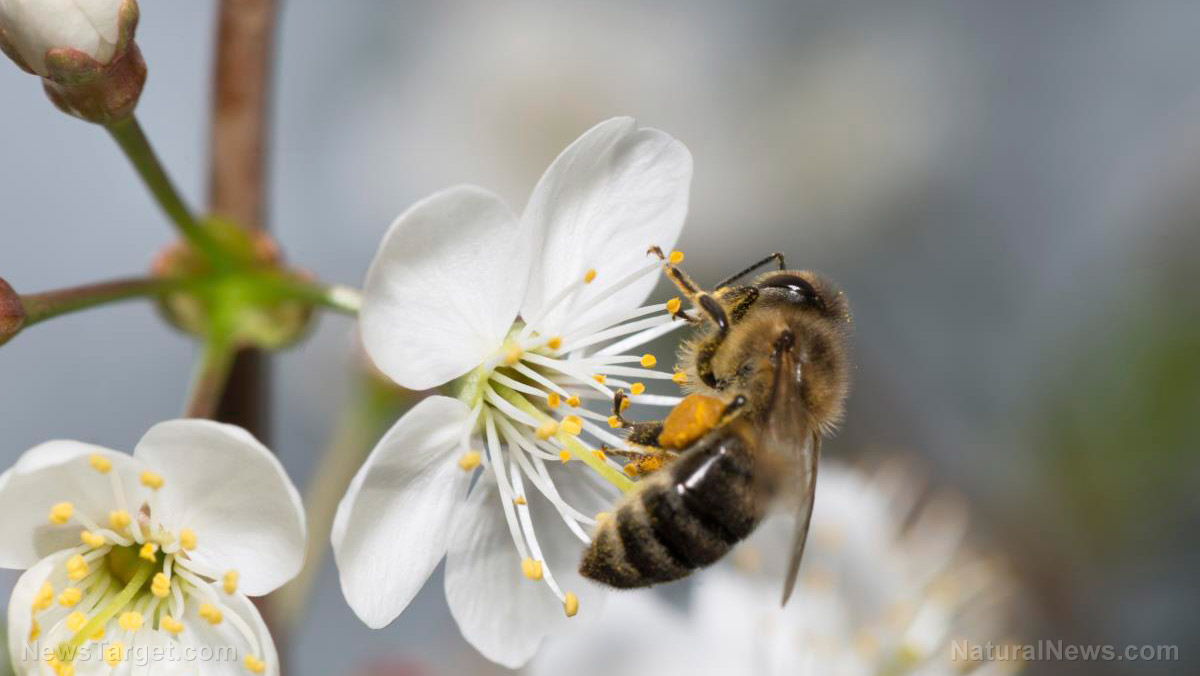Double threat may WIPE OUT honey bees, scientists warn: Pesticides and dwindling food supplies are killing them off at a record pace
01/09/2018 / By Rita Winters

For many years now, scientists have been warning us of the decreasing honey bee population. A new research reveals that honey bees could soon go extinct due to the increased uses of chemical pesticides and the severely low amount of food supplies for these poor creatures. A University of California, San Diego study shows that chemical pesticides, as well as a lack of food for honey bees, are threatening their already low population.
Clothianidin and thiamethoxam are two of the neonicotinoid pesticides that are killing off these vital insects. Researchers found that these chemicals, combined with low nutrition, highly impact the life span of honey bees, and severely increased the number of bee deaths by 50 percent. The effect of both these lethal factors are the same as giving poison to a person suffering from malnutrition – both are lethal individually, but together accelerate mortality. The chemicals as mentioned above affect honey bees by decreasing their hemolymph (bee blood) sugar levels and cause the insect to lose energy.
On the other hand, honey bees’ food supply is greatly decreased by land development. The unnecessary rise of developments for commercial and residential purposes are reducing flower sources for the bees. Deforestation is also a factor, as well as commercial agriculture practices. By creating more “lives” for people, the lives of honey bees become endangered.
Why should we care about honey bees?
Honey bees collect their food (nectar) from plants, and in that collection process, pollination occurs. Pollination is the process by which a plant’s pollen from its male gland (stamen) is transferred to its female gland (pistil), therefore enabling fertilization of the said plant or fruit production. Pollen attached to a honey bee’s limbs sticks to other flowers of the same kind, a natural way of creating more of the same plant. The complexity of their food collection creates a vital element in the ecosystem, and at least one-third of our food supply relies on honey bee tasks. These insects are responsible for pollinating food crops such as almonds, apples, avocados, blueberries, cantaloupes, cherries, cranberries, cucumbers, sunflowers, and watermelons.

Many people still fail to understand the importance of honey bees to us humans. And because of the lack of knowledge on these creatures, the honey bee population is fast declining. Many big pesticide firms understand that their chemicals kill off these beneficial insects, but continue to greedily create more chemical pesticides despite the fact. While pesticides in the country are strongly regulated by the Environmental Protection Agency (EPA), chemical pesticides that negatively affect honey bees are still being used without regulation or supervision especially in other countries.
To put it simply, honey bees are important to us humans because if honey bees do not pollinate crops, the crops fail to grow and produce the food that we eat. (Related: Conventional agriculture strikes again: Analysis finds that fungicides are causing the decline in endangered bumblebee populations.)
Help honey bees help us
By protecting the honey bee population, we ensure that there will be no extinction level event for us humans as well. In order to help these wonderful creatures, higher restrictions on chemical pesticides must be put in place. People should also start planting bee-friendly flowers and other flowering herbs in their gardens. Keeping some flowering weeds in the garden will also help these insects, as these are sources of food for them too. Looking at the bigger picture, you can also help bees by supporting your local farmer, instead of buying plant-based food from groceries (which are mostly produced by commercial farms that use pesticides). Learning how to be a beekeeper also helps, and you’ll have your own supply of tasty honey.
Follow more news on pollinators at Bees.news.
Sources include:
Submit a correction >>
Tagged Under:
This article may contain statements that reflect the opinion of the author





















